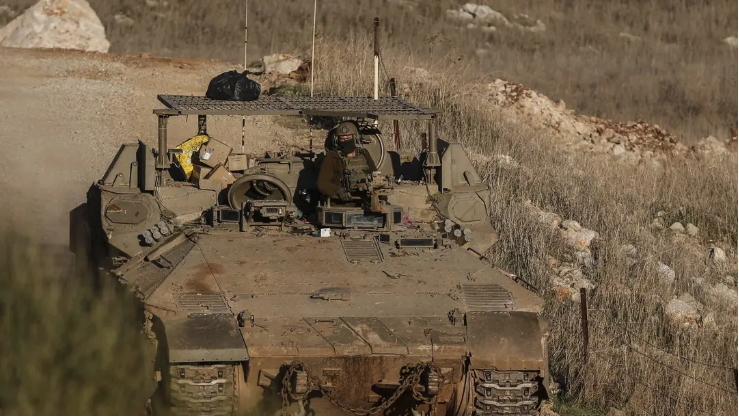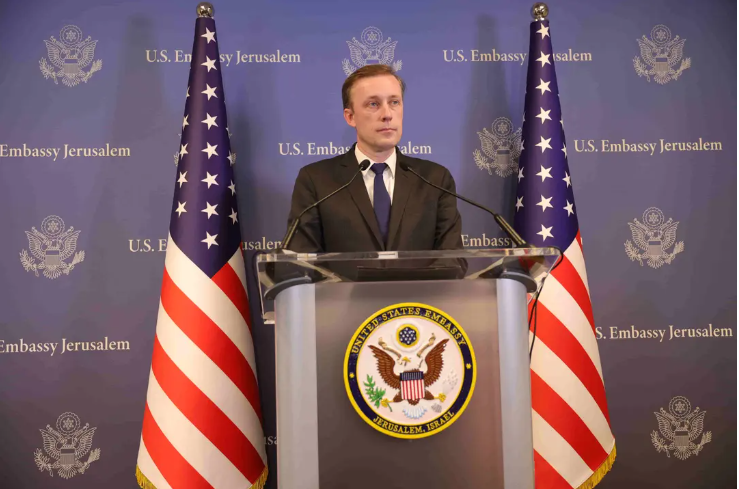Hezbollah Leader Pledges 'Strong' Response to Commander Killing
During a speech on Tuesday, Hezbollah chief Hassan Nasrallah said that Israel's killing of top commander Fuad Shukr last week will elicit a 'strong response' and 'must be treated differently' following the strike that occurred in Beirut's southern suburbs....
Facts
- During a speech on Tuesday, Hezbollah chief Hassan Nasrallah said that Israel's killing of top commander Fuad Shukr last week will elicit a 'strong response' and 'must be treated differently' following the strike that occurred in Beirut's southern suburbs.[1]
- Nasrallah also said that, regardless of the consequences, it must punish Israel for the killing, indicating that the response will either be undertaken by Hezbollah on its own or alongside other Iranian-backed groups. He added that Shukr's death was a big loss but did not change the course of the war.[2]
- Meanwhile, as the region waits for Iran and Hezbollah's response, fighting in Gaza continued. Israeli airstrikes have hit two schools in Gaza in the last week, with the military saying they were Hamas 'command and control centers.' Footage reportedly from the schools appeared to show several bodies, including children.[3]
- As the fighting continues, cease-fire talks have again stalled. Israeli Prime Minister Benjamin Netanyahu said he is willing to go 'very far' to release the hostages 'while maintaining the security of Israel.'[4]
- Israeli reports have indicated that Defense Minister Yoav Gallant told Netanyahu that the new demands he has introduced for a cease-fire will make a deal impossible. Netanyahu denied that he had added new terms.[4]
- Netanyahu has argued that it is Hamas that is 'demanding dozens of changes.' Israeli media has reported that Netanyahu plans to fire Gallant and possibly other top security officials over disagreements regarding the war and cease-fire negotiations.[5]
Sources: [1]Timesofisrael (a), [2]Naharnet, [3]BBC News, [4]Reuters and [5]Timesofisrael (b).
Narratives
- Pro-establishment narrative, as provided by Ft. A guaranteed end to the war will ensure increased humanitarian aid to the besieged enclave, preserve Israel's security, and create a better 'day after' in Gaza without Hamas in power. The US will continue to work toward closing the gaps and ensuring that peace and stability can be restored to the region.
- Pro-Israel narrative, as provided by Jerusalem Post. Israel wants to make a deal and get its hostages back, but it cannot allow Hamas to stay in power. If Hamas is allowed to remain in power in Gaza, the group will immediately begin planning the next Oct. 7 terrorist attack. Though there are pressures at home and abroad to end the war prematurely, Israel must do what is best for its citizens.
- Pro-Palestine narrative, as provided by Middle East Eye. Israel's aggressive posture only demonstrates that it is a rogue state that would rather light the region on fire than stop its genocide of Palestinians in Gaza. Netanyahu continues to engage in provocative acts because he has failed to achieve his political and military objectives. While Netanyahu extends the war to ensure his political survival, the US continues to support Israel with a blank check and obfuscate its role in the carnage.
- Narrative D, as provided by Almayadeen. Hezbollah and the regional resistance's primary goal has always been to end the war in Gaza, not start a far larger regional conflict. Nonetheless, Israel's aggression against Beirut and Hamas' political leadership must be responded to.







